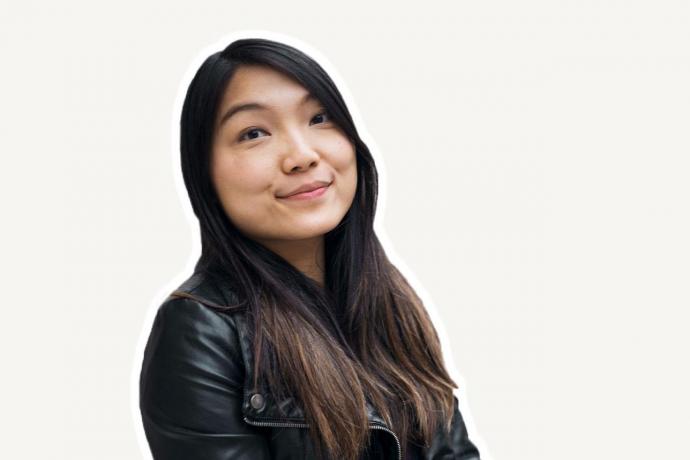Architecture Alumna's Group Enables Women to 'Be Heard, Be Seen, Be Known'

Joann Lui '11, an architect in Lawrenceville, N.J., is only 32 but may have already helped more people thrive in her field than most professionals could mentor in a whole career.
In 2018 Lui founded a Facebook group called Women Architects Collective, which now has more than 3,000 members who join from around the world, all seeking a safe space to discuss industry issues such as harassment, inclusion, job searching, technical matters and more.
"Women Architects Collective is an online platform for women architects looking to redefine their own work journey. We’re leading the conversation on what it takes to be a modern women architect. … I’m here to help you be heard, be seen, and be known in your work journey," her group description states.
"I always wanted to start a community, a Facebook group online, but I didn't really have the time to do it. I was always busy getting my license and studying for the exam," explained Lui, a graduate of NJIT's Hillier College of Architecture and Design. But when she reached that milestone, she found time on her hands and had experienced enough ups-and-downs to begin considering ways to help others. "I've gone through the struggles, the problems that we have, and I was at the same time frustrated with talking to my friends, my coworkers, and feeling like they don't know what to do with the problems they face. … I always felt like there must be a way. I don't know if I have the power to change it, but at least have a place to have a conversation."
She asks every new member about their biggest struggles. The most common responses are not being heard at work, not being taken seriously and how to stay effective as a working mother.
Lui said she'd like to expand the group with offline events and meetings when the pandemic ends — and possibly allow men to join, who may see themselves as allies. She hosted a virtual event for International Women's Day this month, has another planned for Mother's Day in May, and would like to see a larger event in the fall. She sees her work as complementing that of established offline organizations, such as the Association for Women in Architecture + Design.
As for her own career, Lui spent a decade in the trenches as a working architect at mega-firm Gensler and local specialist Lindemon Winckelmann Deupree Martin Russell. A month ago, she traded that life for a content marketing position at San Francisco-based startup Monograph, which develops software to help architects track projects.
"I went into that because it's a perfect combination of what I do on the side for myself — doing the Women Architects Collective and my own personal brand. I have learned a lot about marketing and branding in general," Lui explained.
However, Lui said her dream job would be if she could make her living by turning the Facebook group into something larger, such as a non-profit organization. She believes it's possible and knows she cannot rush the process.
Meanwhile, she shared a wealth of advice for younger people, observing that current students should work on time management and being open-minded to related careers where architecture experience would help. She noted lessons learned from Hillier Associate Professor Darius Sollohub, who taught her how architecture can impact communities — "He was always very eager to listen to the students and give us a more well-rounded experience," she said.
For young professionals in the field, "Learn to say no. It's not even a gender thing. As a younger architect, when you first come out of school, you feel like you don't know anything and you have to work really hard. You get work piled on you. The expectation is you don't have kids, you don't have family to go home to, you can just stay in the office and work," she said. "That's something if I had known earlier in my career, I wouldn't have gone through so many burnouts and been so tired all the time."
Finally, for people who don’t share these experiences, Lui suggested listening more and not being afraid to ask questions about other people's cultures and experiences. For example, she said, her childhood was in Hong Kong — she didn't come to America until age 16 — so people may make incorrect assumptions about shared experiences. "I think if you actively just listen to how people describe these issues," she said, "and even if you ask them about the issues that they face and you don't face personally, it would help you understand better."


